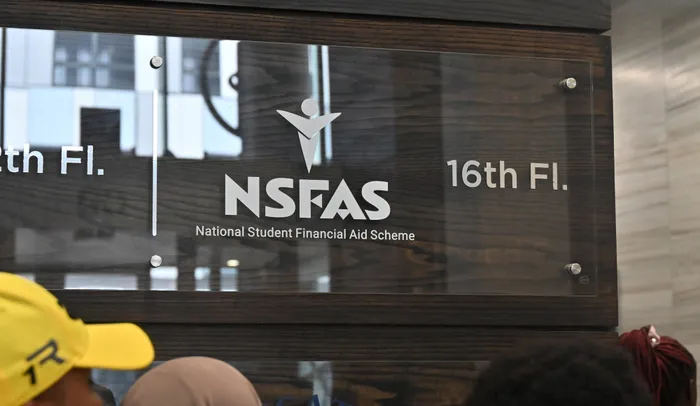Drama as Nzimande dissolves NSFAS Board

Higher Education Minister Blade Nzimande has placed the embattled National Student Financial Aid Scheme (NSFAS) under administration. Picture: Ayanda Ndamane/Independent Newspapers
HIGHER Education Minister Blade Nzimande is expected to explain in the Government Gazette on Friday the legal effect of placing the embattled National Student Financial Aid Scheme (NSFAS) under administration.
He announced his decision to dissolve the NSFAS board after Ernest Khosa resigned as board chairperson.
Nzimande held an urgent meeting with the board on Thursday to share his intended actions.
In the evening his spokesperson Veli Mbele said: “The purpose of the meeting was to communicate the Minister’s decision to dissolve the NSFAS Board, with immediate effect and place the institution under administration.”
The last time the scheme was placed under administration was in 2018.
Mbele said the decision was part of the set of interventions meant to improve the organisational efficiency of the entity and to ensure it remained focused on its mandate.
Chaotic scenes of protests have once again erupted at some institutions following delays in the disbursement of student allowances.
The entity has also been making headlines over corruption allegations involving senior executives, with Khosa being the latest to exit after former CEO Andile Nongogo.
Khosa issued a resignation letter to Nzimande, quitting his role as chairperson citing continued safety and security concerns including of his family.
Nzimande accepted his resignation and his office publicly announced it.
These developments come while the public eagerly await the findings of an independent legal firm, Tshisevhe Gwina Ratshimbilani Inc (TGR Attorneys), appointed to investigate the veracity of fraud and corruption allegations against Khosa.

Professor Lourens van Staden has been acting as NSFAS board chairperson for about three months after Khosa “voluntarily” took leave of absence in January amid fraud allegations.
This was in the wake of civil organisation, Organisation Undoing Tax Abuse (Outa) releasing a series of leaked recordings and transcripts of recordings of two meetings allegedly held between Khosa and NSFAS service providers.
The allegations further suggest that he purportedly received financial benefits from these service providers, implying a quid-pro-quo arrangement for facilitating appointments. Additionally, it is alleged that Khosa made decisions in collaboration with service providers.
Nzimande and the SACP were implicated but denied the allegations.
Van Staden confirmed the board's approval of TGR, stating it was a reputable firm.
“The terms of reference are that we want the legal firm to familiarise themselves with the Outa reports, NSFAS Act, the board charter, code of conduct and other relevant documents, to report the veracity of allegations of the Outa report that relates to the board chairperson and the board itself.
“Further to this, (they must) appropriate steps such as audits and risks, and the potential impact of the work of NSFAS in reviewing the contracts of the companies involved in the direct payment and any other related matters that may arise out of the examination and consideration of the report,” said Van Staden.
It is not clear if TGR Attorneys have concluded the report as in February NSFAS stated that the firm was expected to produce legal advice in a month’s time and also expected to write a report for presentation to the board which would also be shared with Nzimande.
South African Union of Students (SAUS) spokesperson Asive Dlanjwa welcomed the resignation of Khosa and the board being dissolved.
However, he said their priority was students being funded. “We note the minister’s commitment to meet with us and other stakeholders. Until we are brought into confidence that students will receive their allowances soon and not affected by the recent decision we remain concerned.”
Students had given NSFAS until Friday to resolve the issue of unpaid allowance.

Outa’s investigations manager Rudie Heyneke said it was surprising that Khosa was referred to as an employee in the resignation announcement, given Khosa’s role as a non-executive director and board member of NSFAS.
“Such a position is typically viewed as a governance role rather than employment within the institution. As long as government institutions are led by individuals lacking integrity and or ethical values, and when there’s a lack of accountability for those who fail in their duties, problems will continue to persist within state institutions.
“This not only undermines the effective functioning of these entities but also results in the wasting of millions of taxpayers money.
Addressing issues of poor leadership is essential to ensuring the proper functioning and accountability of state entities,” said Heyneke.
Cape Times
Related Topics: